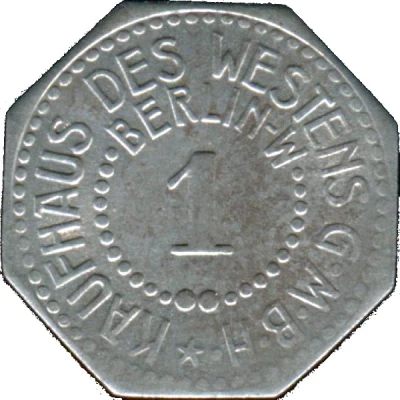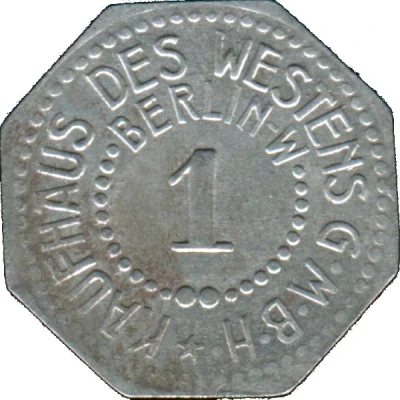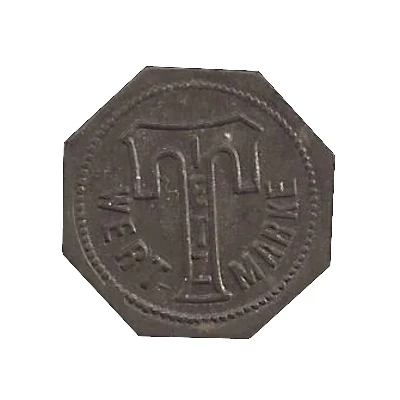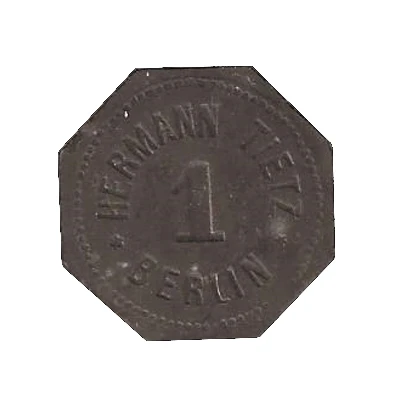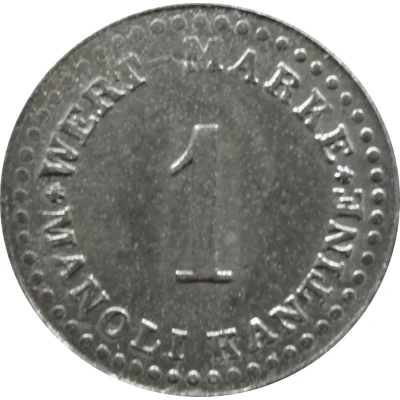
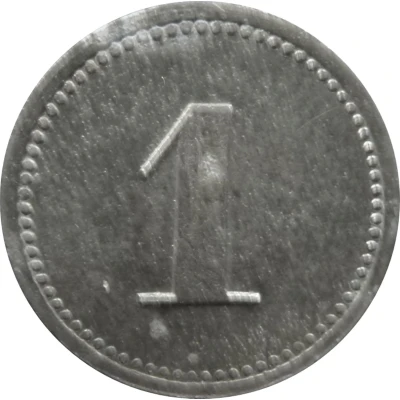

© Willem63 (CC BY-NC-SA)
1 Pfennig - Berlin (Manoli Kantine) ND
| Zinc | 0.8 g | 15.2 mm |
| Issuer | Prussian province of Berlin (German notgeld) |
|---|---|
| Type | Standard circulation coin |
| Value | 1 Pfennig (0.01) |
| Currency | Mark (1914-1924) |
| Composition | Zinc |
| Weight | 0.8 g |
| Diameter | 15.2 mm |
| Thickness | 0.9 mm |
| Shape | Round |
| Technique | Milled |
| Orientation | Medal alignment ↑↑ |
| Demonetized | Yes |
| Updated | 2024-10-04 |
| Numista | N#317466 |
|---|---|
| Rarity index | 97% |
Reverse
Pearl rim, with denomination centered
Script: Latin
Lettering: 1
Edge
Plain
Comment
Menzel: BBBFa: Zigarettenfabrik (Cigarette factory)
Manoli was the name of a German cigarette factory. It was founded by Jakob Mandelbaum (* 1859; † October 23, 1918) in Berlin, initially under the name Cigarette Factory Argos, and in 1897 it is said to have been named after Jakob Mandelbaum's wife Ilona Mandelbaum (read backwards). The origin of the name cannot be proven with certainty, because Jacob Mandelbaum's wife's name was Rosa and she was born in Jotzen in 1857. There are suggestions that Manoli may have been a nickname of Jacob Mandelbaum.
Another variant of the naming names a foreign language as the origin, in which Mandelbaum is translated as Manoli.
The company was known for its excellent packaging design. The Manoli corporate logo, found on merchandise, corporate trucks, window displays and promotional materials, is often cited as an early example of corporate design.
Interesting fact
The 1 Pfennig - Berlin (Manoli Kantine) ND coin from the Prussian province of Berlin is a rare example of a coin that was issued during a time of economic crisis in Germany. The coin was made of zinc, which was a cheaper alternative to traditional metals like copper or silver, and it weighs only 0.8 grams, making it one of the lightest coins in circulation at the time. Despite its small size and value, the coin remains a popular collector's item among numismatists today.
